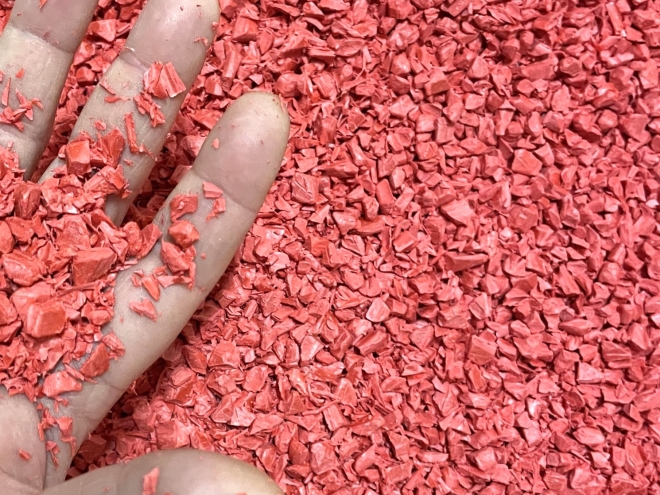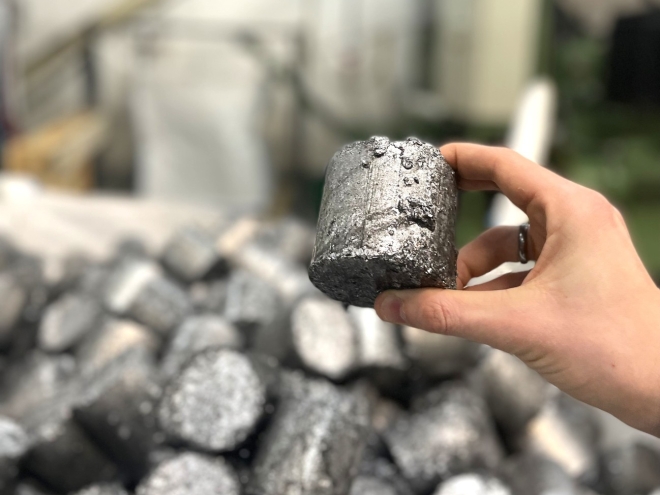Menu
We want to be frontrunners in the responsible production of plastic, light metal and EPS/EPP items and want to set a good example to our customers, suppliers, business partners and competitors. That's why we have high ambitions for sustainability and take active responsibility.
By addressing the causes of the climate impact of our value chain, we can take responsibility and optimise it. We want to be responsible in all stages of our production and will do what we can to minimise our direct and indirect climate impact.

At Idé-Pro, we minimise waste by sourcing recycled materials and reusing our own surplus materials. We crush surplus plastic in-house and recycle it, just as we re-melt surplus metal and recycle it.
Some of our crushes are compounded in-house on our extrusion machines, while others are compounded externally. Recycling is not only good for the environment, we also optimise our use of resources and materials.
We want our customers to be able to make responsible choices, which is why we offer guidance on sustainable materials - we have extensive experience and knowledge of sustainable materials.
Therefore, we offer expert guidance on sustainable materials, such as bioplastics, and are happy to calculate estimated CO2e figures for your items or products. We experience a significant reduction in CO2e emissions for items, e.g. when changing materials.
Do you want guidance on sustainable materials?
